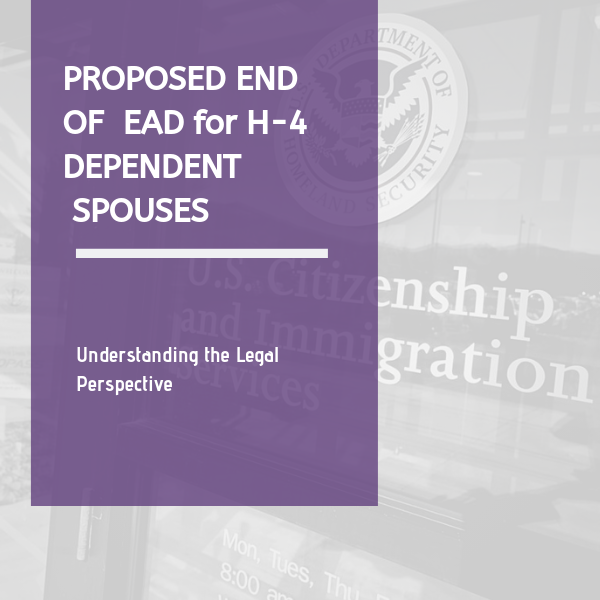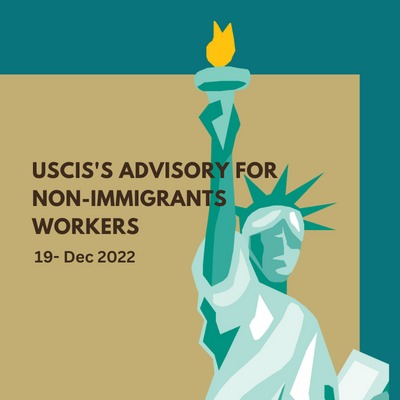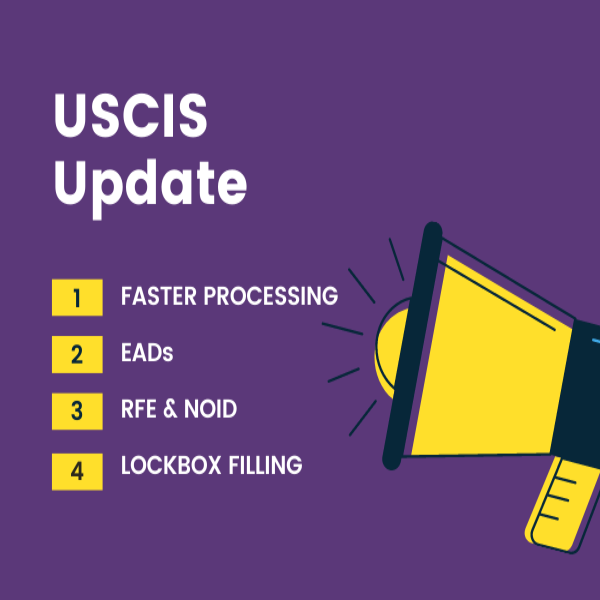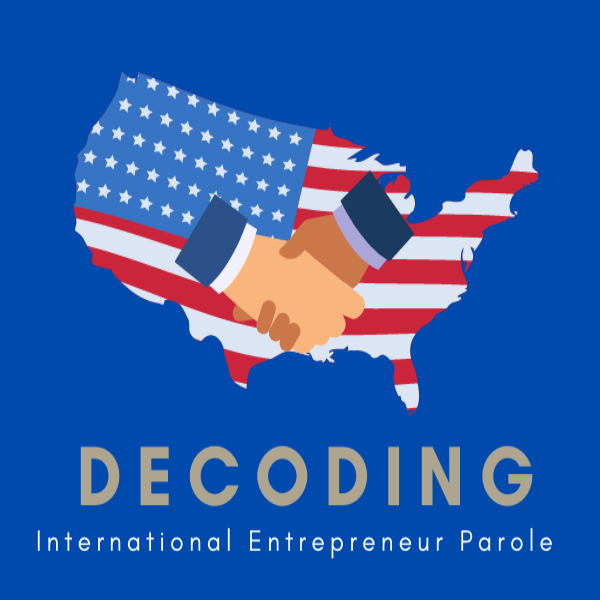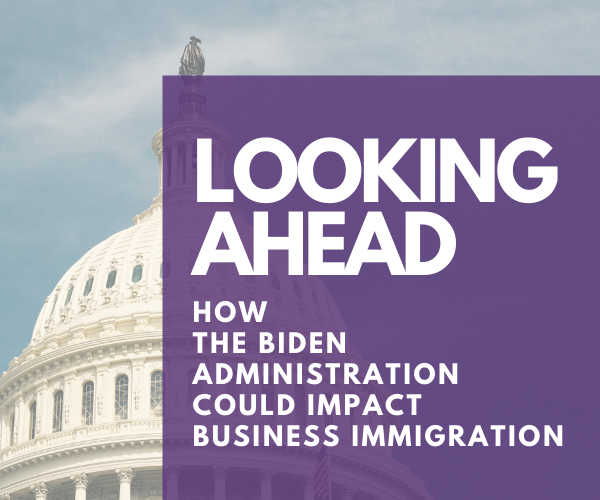On February 2019, the Department of Homeland Security (DHS) proposed a rule to end the H-4 EAD program (which allowed certain spouses of H-1b visa holders to obtain an employment authorization (EAD)). This proposed rule was submitted to the White House Office of Management and Budget (OMB) for review on February 20, 2019.
In 2015, during Obama’s tenure, the DHS released a final rule, which allowed certain H-4 dependent spouses of H-1b status holders to be eligible for an EAD. This resulted in a lawsuit being filed by Save Jobs USA on April 23, 2015, which demanded that the U.S. District Court for the District of Columbia rescind the H-4 employment authorization final rule as well as stopping the DHS from executing it. According to the lawsuit, the publication and implementation of the final rule was beyond the statutory authority of the DHS. Additionally, according to the lawsuit, the rule adversely affected Save Jobs USA’s members since it led to increasing competition for employment. The U.S. District Court for the District of Columbia dismissed this lawsuit. This dismissal was appealed.
The intent to rescind EAD for H-4 spouses was first made public in 2017. Due to the Buy American and Hire American executive order signed by President Donald Trump, the DHS seeks to review and rescind the 2015 H-4 EAD final rule. DHS hopes to remove H-4 spouses of H-1b status holders as a class of nonimmigrants eligible for the EAD.
Due to the intent of the DHS to review the H-4 EAD rule, the Save Jobs USA v. DHS case was rescheduled until September 27, 2017. The next hearing of the Save Jobs USA v. DHS will be on April 29, 2019, when Save Jobs USA presents their reply brief (their part of the story). Both the DHS and Immigration Voice (Immigration Voice is a 501(c)(4) nonprofit organization working to alleviate problems faced by legal high-skilled foreign workers in the United States, including delays due to visa number unavailability for certain employment categories and backlog delays. They filed a motion to intervene in this case and the motion was accepted.) presented their briefs on April 1, 2019, and April 8, 2019, respectively.
At the moment, the White House Office of Management and Budget (OMB) review of DHS’ proposed rule to end the H-4 EAD program is pending. The review, which started when the proposed rule was submitted on February 20, 2019, could take as long as 90 days. After that, there will be a Notice and Comment period. After which, the DHS will need to reply to comments before publishing the final rule. Since the proposed rule has not been published, the At the moment, the White House Office of Management and Budget (OMB) review of DHS’ proposed rule to end the H-4 EAD program is pending. The review, which started when the proposed rule was submitted on February 20, 2019, could take as long as 90 days. After that, there will be a Notice and Comment period. After which, the DHS will need to reply to comments before publishing the final rule. Since the proposed rule has not been published, the DHS will continue to accept and adjudicate EAD application from H-4 status holders until the final rule becomes official.
What Is H- HAD?
The Employment Authorization for Certain H-4 Dependent Spouses final rule, commonly known as the H-4 rule or the H-4 EAD rule, came into effect on May 25, 2015. This rule is designed to encourage highly skilled H-1b workers to prolong their stay in the United States and work towards obtaining a permanent residency status by making their H-4 dependent spouses eligible for EAD.
With an EAD, dependent spouses can be employed without restrictions and the minimum wage requirements that typically come with the H-1b status. Also, dependent spouses with an EAD are given a social security number.
To be eligible, the H-4 status holder has to be the dependent spouse of H-1b visa holders (this include H-1b nonimmigrants whose
A. Status is grant under the AC-21 Act
B. or are principal beneficiaries of an approved Form I-140, Immigrant Petition for Alien Worker).
Importance Of H4 EAD
As presented by Immigration Voice on April 8, 2019, H-4 EAD rule rescinsion will negatively affect the U.S. economy and government, and tens of thousands of families in the U.S. The United States will lose billions in revenue, tens of thousands of highly skilled labor, and make the lives of tens of thousands of families unnecessarily difficult if the H-4 rule is rescinded.
(i) H-4 EAD Rescinsion impact on the families of H1-B non immigrant workers
Rescinding the H-4 EAD will have significant effects on H-1b skilled workers and their families. The availability of the H-4 EAD enabled many highly skilled foreign workers to start families, buy homes and invest in higher education. Rescinding the EAD rule will not only adversely affect these people; it will also inadvertently cause the U.S. to lose highly skilled labor.
(a) Due to the EAD rule, 87% of families of H-1b status holders have dual incomes.
(b) 52,000 families have homes in the U.S. that cannot be paid for without income from dependent spouse on EAD.
(c) 27,000 H-1b status holders and dependent spouses have a child and as such require dual incomes source provided by the H-4 EAD to cover unescapable expenses that come with raising a child.
(d) In addition, since 90 percent of H-4 dependent spouses are females, the rescission of the H-4 rule will have an unequal outcome on women.
(ii) H-4 EAD rescinsion impact on Revenue
(a) H-4 workers on EAD contribute $12.9 billion to the U.S. economy.
(b) Out of the employed 91,000 H-4 dependent spouses, 99 percent are college graduate and nearly 60 percent hold Masters Degrees, rescinding the rule will cause the U.S. to lose a large pool of highly skilled workers.
(c) The rescission of the H-4 rule will cost the U.S. annual GDP between $7.5 billion and $15 billion.
(d) The federal government will lose about $1.9 Billion in annual tax revenue. State and local government will also lose about $530 million in annual tax revenue.
(iii) The H-4 rule does not have any significant negative effect on American workers
As presented by immigration voice
(a) Two-thirds of H-4 dependent spouses on the EAD work in occupations where unemployment rates are less than 2 percent.
(b) Only 5,500 to 8,200 jobs will be available to Americans if the H-4 rule is rescinded. On the other hand, 91,000 skilled workers will be lost if the H-4 rule is rescinded. Jobs created by H-4 dependent spouses on EAD who run their own businesses evens out the impact of the H-4 EAD on a loss of jobs to American workers.
Best Course Of H4 Dependent Spouses Eligible For The EAD
In the midst of all the uncertainty surrounding the H-4 EAD program, we at the Law Offices of Prashanthi Reddy, are advising our clients with H-4 EAD to renew their EADs as soon as possible (180 days before current EAD end date). Eligible foreign nationals who have not applied for an H-4 EAD should seriously consider starting the application process as soon as possible. We are hoping that the final law will not affect people who are already on H-4 status. Alternatively, persons with an H-4 EAD, who have the option to change their status to an H-1b, should consider filing for the same or look at other work authorization types available to them. We will be happy to assist with that process.
SOURCES:
A. White House Office of Management and Budget. (2018). Removing H-4 Dependent Spouses from the Class of Aliens Eligible for Employment Authorization. Retrieved April 11, 2019, from https://www.reginfo.gov/public/do/eAgendaViewRule?pubId=201810&RIN=1615-AC15
B. AILA. (March 13, 2019). Documents Related to H-4 EAD Litigation. Retrieved April 11, 2019, from https://www.aila.org/infonet/dist-ct-save-jobs-usa-v-dhs
C. White House Office of Management and Budget. (February 20, 2019). Pending EO 12866 Regulatory Review. Retrieved April 11, 2019, from https://www.reginfo.gov/public/do/eoDetails?rrid=128839
D. Bloomberg LP. (February 21, 2019). White House Poised to End Work Permits for H-1B Spouses (2). Retrieved April 11, 2019, from https://news.bloomberglaw.com/daily-labor-report/white-house-poised-to-end-work-permits-for-h-1b-spouses-2
E. Brief for the Chamber of Commerce of the United States of America, the Information Technology Industry Council, and the National Association of Manufacturers as Amici Curiae in Support of affirmance, Save Jobs USA v. DHS. (No. 16-5287). (2019) Retrieved April 11, 2019, from http://documents.nam.org/LAW/SaveJobsUSAvDHSDCCir04082019.pdf

